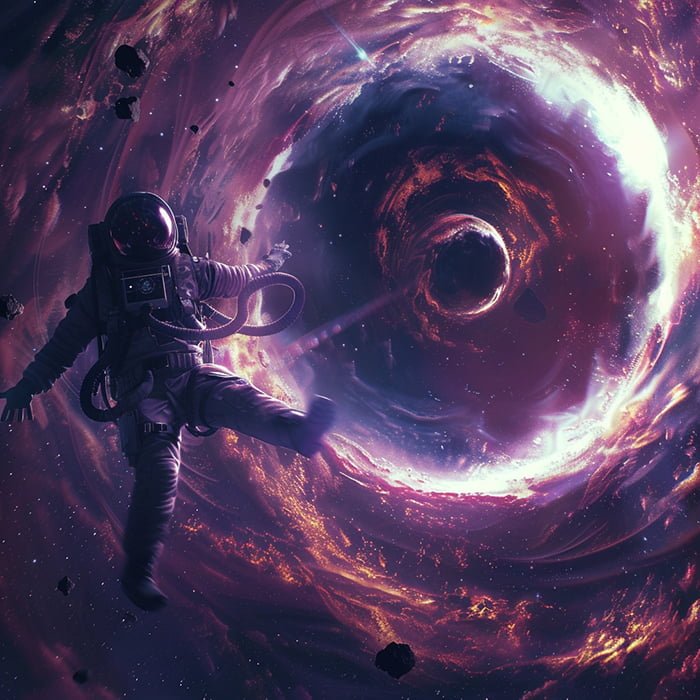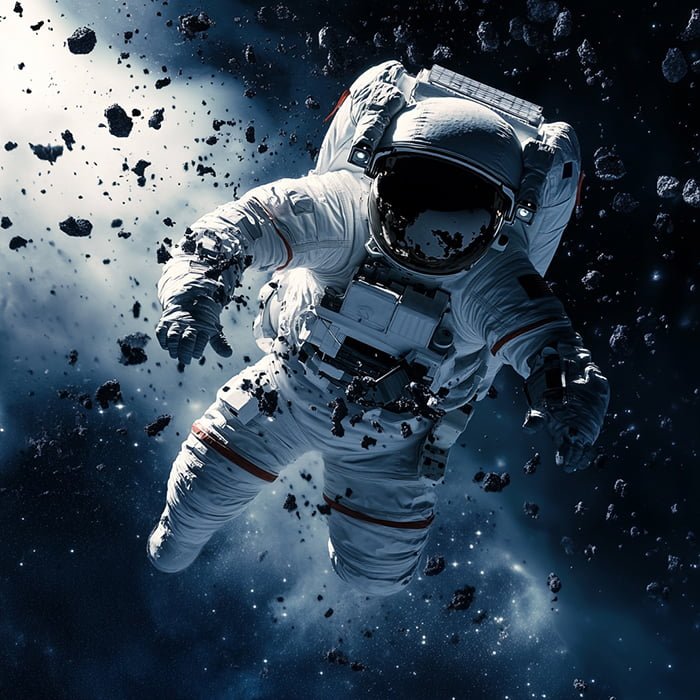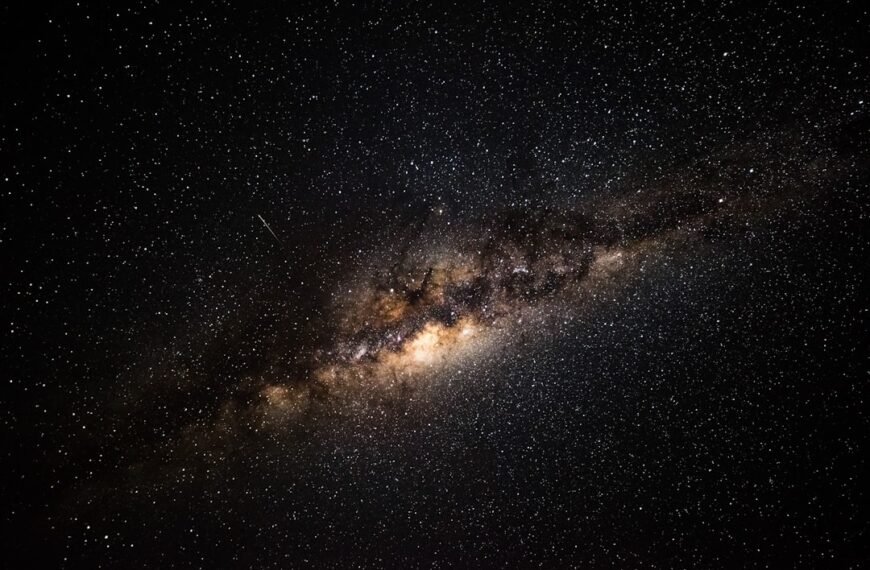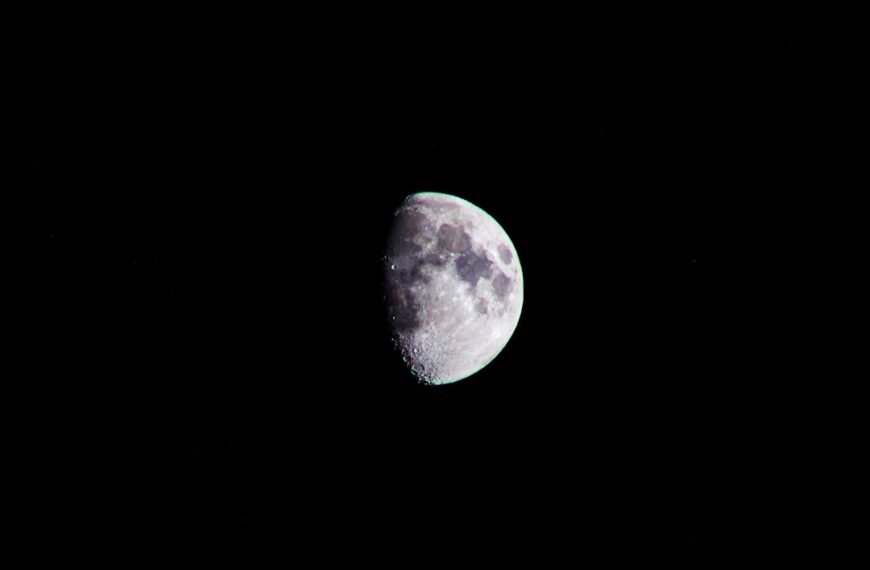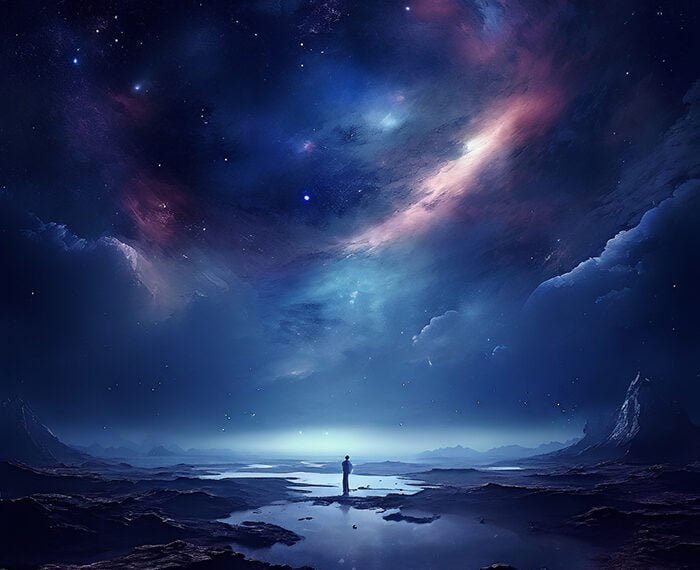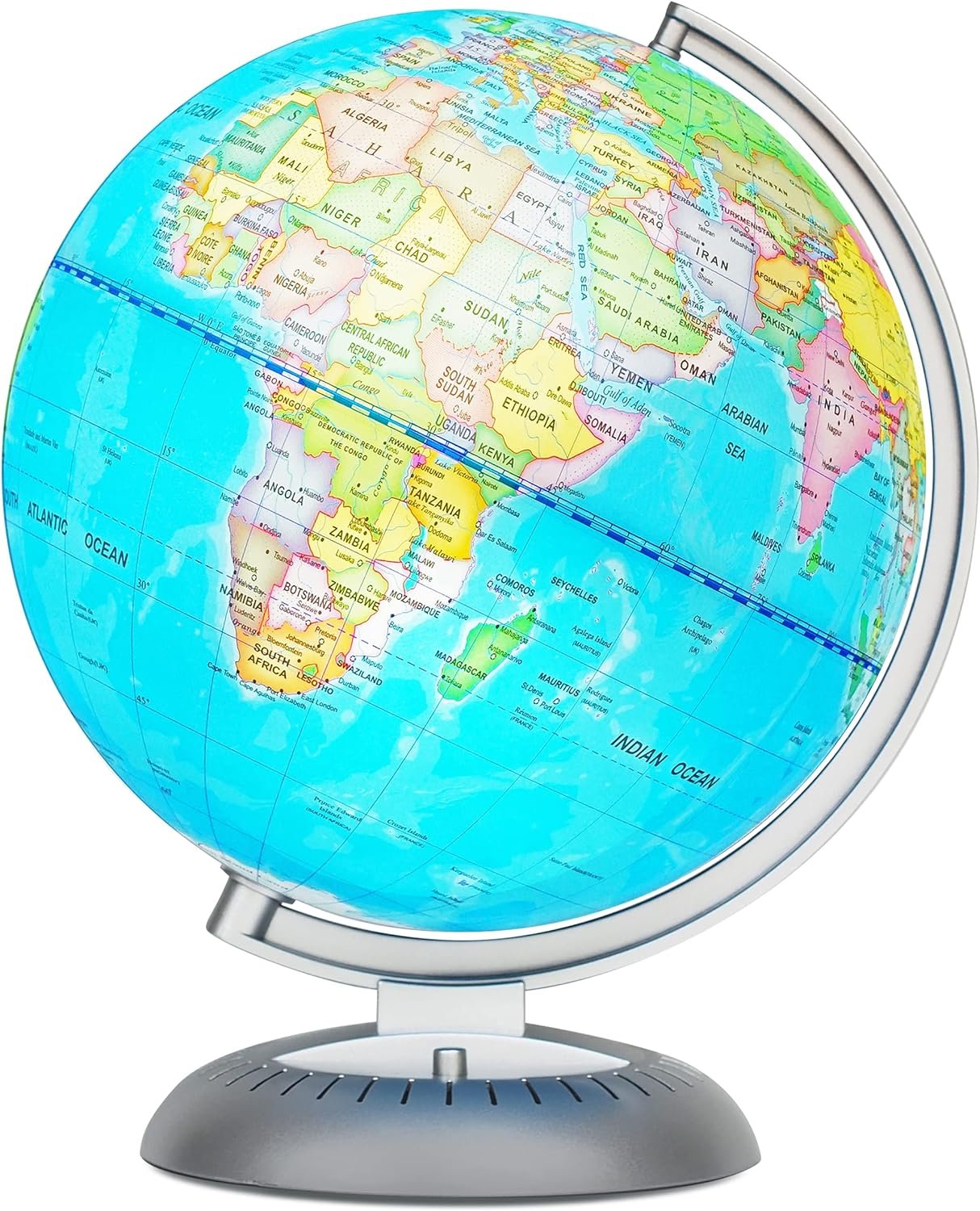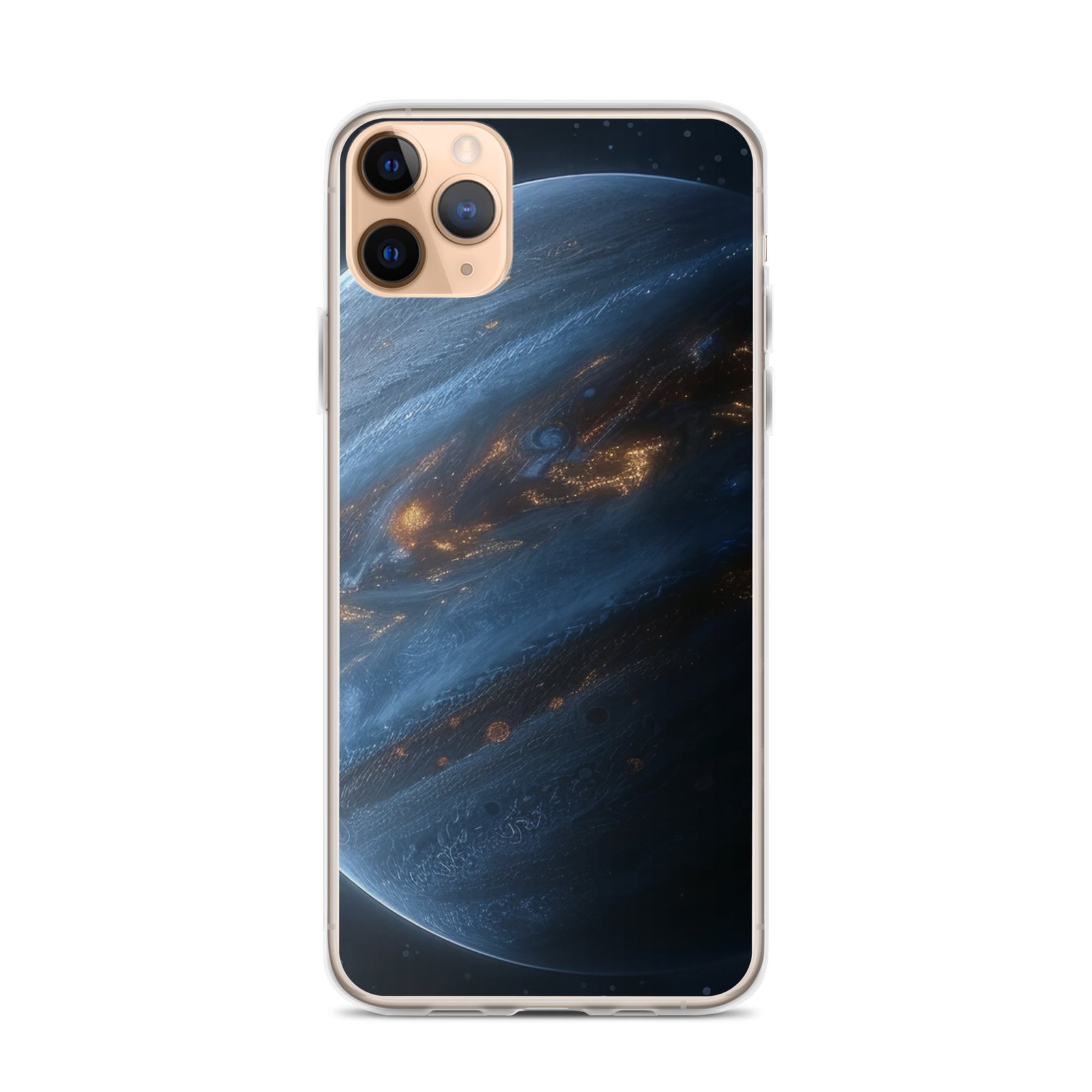Black holes are some of the most enigmatic and extreme objects in the universe. Their immense gravitational pull and the bizarre effects they have on space and time make them a subject of endless fascination. But what would it actually feel like to fall into a black hole? Would it be painful? This article delves into the science behind these cosmic giants to answer this intriguing question.
Key Takeaways 📝
- Falling into a Black Hole: Discover the surprising sensation of weightlessness and calm you would initially feel when falling towards a supermassive black hole, contrary to what one might expect.
- Spaghettification Explained: Learn the scientific phenomenon of “spaghettification,” where tidal forces stretch you head to toe as you approach a black hole, highlighting the intense gravitational effects.
- Different Experiences Based on Black Hole Size: Explore the provocative idea that falling into a supermassive black hole might initially be painless, while smaller black holes would cause immediate and severe pain due to stronger tidal forces.
- Gravitational Time Dilation: Gain insight into how, from an outside observer’s perspective, you would appear to slow down and freeze in time as you near a black hole, a powerful example of relativity in action.
- Core Message: Understand the extreme conditions and fascinating physics of black holes, which not only satisfy curiosity but also deepen our knowledge of the universe and the fundamental laws governing it.
Understanding Black Holes
What is a Black Hole?
A black hole is a region in space where the gravitational pull is so strong that nothing, not even light, can escape from it. This phenomenon occurs when a massive amount of matter is compressed into a very small area, creating a singularity with infinite density and zero volume.
The Event Horizon
The event horizon is the boundary surrounding a black hole beyond which nothing can escape. It marks the point of no return, where the gravitational pull becomes so strong that escape is impossible.
The Experience of Falling into a Black Hole
Initial Stages: Weightlessness and Calm
If you were falling toward a black hole, most of the time you would simply feel weightless. This is because the gravitational pull would be uniformly strong across your body, giving you a sensation similar to free-fall. For a supermassive black hole, you could fall through the event horizon past the point of no return without feeling even a twinge.
Tidal Forces: The Stretching Begins
As you get closer to the black hole, the gravitational forces on various parts of your body would differ. This difference in gravitational pull is known as tidal forces. You would feel as if you are being stretched head to toe, while your sides would feel like they are being pushed inward. This process is known as “spaghettification”.
.png/500px-Spaghettification_(from_NASA's_Imagine_the_Universe!) .png)
.png)
The Painful Reality: Spaghettification
For smaller black holes, the tidal forces near the event horizon can be quite large, so they will kill you before you cross the event horizon. The gravitational gradient becomes increasingly steep, so the difference between the gravitational pull on the parts of your body nearer the black hole and those further away grows. Eventually, these forces would become so strong that they would rip you apart.
Supermassive Black Holes: A Different Experience
In contrast, for a supermassive black hole, the tidal forces aren’t very large because you cross the event horizon well before you reach the singularity. In this case, you might not feel anything different as you fell in, but to anyone watching, you would appear to slow down and eventually freeze in time due to gravitational time dilation.
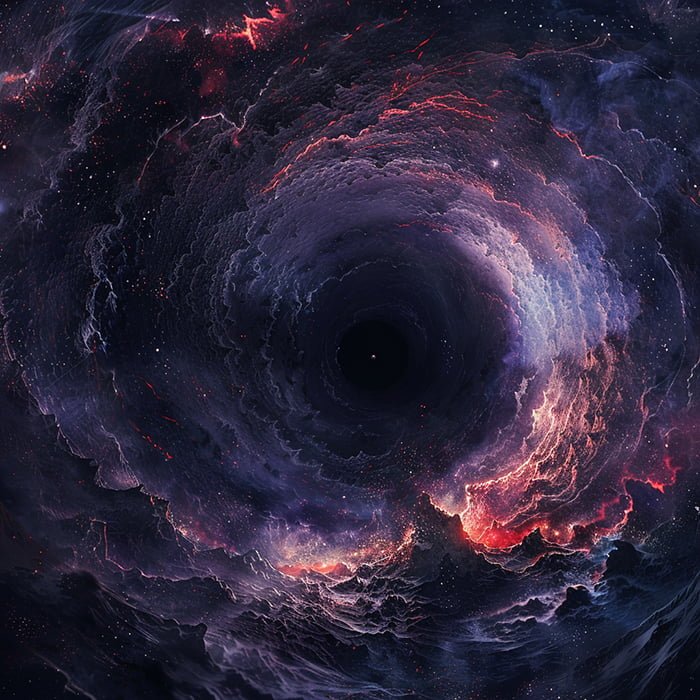
The Final Moments: Oblivion
Once you cross the event horizon, you are in a region where every direction leads you towards the center of the black hole. You would be oblivious to a demarcation of inside or outside. Inside the event horizon, the gravitational forces would continue to stretch you until you are ripped apart at the atomic level.
The Pain and Mystery of Black Holes
So, would falling into a black hole be painful? The answer depends on the type of black hole. For smaller black holes, the experience would be excruciatingly painful due to the intense tidal forces that would rip you apart long before you reach the event horizon. For supermassive black holes, you might not feel any pain initially, but the eventual spaghettification would still be a gruesome end.
This article is important as it highlights the extreme conditions and fascinating physics associated with black holes. It teaches us about the nature of these cosmic giants and the incredible forces at play. Understanding black holes not only satisfies our curiosity but also deepens our knowledge of the universe and the fundamental laws that govern it.

